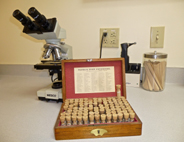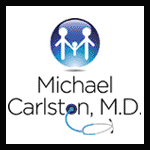
Even before weathering the onslaught of information and propaganda that is also known as medical school, like anyone else in America, I knew that there were “quacks” out there, who deceived the innocent with their “snake oil” treatments. This perception was so well established that it was evident even in old Westerns. The “medicine show” was stock element, orchestrated by the drunk and dishonest “doctor”. It was a colorful, simple and effective image. Not too many young folk thought: “Wow! Sign me up! That’s the career for me!”
This presumption of “alternative healers are dishonest” is not merely a juicy theatrical image. It is real and sometimes personal. I know about the personal side of it. My own critical attitude about the limitations of conventional medicine made me a lightning rod for criticism, controversy and often intense pressure to step back in line or “get the heck out of Dodge”. This very personal pressure would have been unendurable had I not been so determined and sustained by the truth that the criticism was absolutely justified and badly needed. Thankfully, over time, some prejudices at least are overcome by shifting attitudes. Although it moves too slowly forward, science does eventually progress and, low and behold, unexpectedly, MANY of these alternative ideas turn out to be valuable and sometimes invaluable. Personally, I am fortunate because (for the most part) I eventually came to be viewed as a pioneer instead of a misguided crazy person or a crook.
The most self-righteous and withering denunciations of alternative therapies are pointed at those treating cancer patients. After all, what better proof could there be of the essentially evil intent of these quacks than how they take advantage of people who are most desperate for a cure? Just like conventional treatments, every alternative will not work sometimes and some are unlikely to ever work. Statistically there must be crooks out there (just like in conventional medicine and big pharma) knowingly making a buck off of the sick and desperate. However, this story of the evil quack is a fable, a tall tale or even propaganda some times.
As an outlier in my profession, many people have come to me looking for something different. They have taught me from their response to my treatment but also from their recounting of experiences they had before entering my practice. I have learned that there are a lot of people who have recovered from cancer when they just should not have done so. The unexpected can occur. Radical remission is possible.
For example, 25 years ago an elderly woman came to me to establish a relationship as her primary doc. In going through her history, I learned that 15 years before that, she had abdominal surgery to remove a cancer. The surgeons had to abort the operation as the cancer was too extensive to be removed. Attempting to remove it would not have helped and would have caused too much damage to her internal organs. They sent her home to die without any treatment. However, she didn’t die. She got well on her own and was still healthy when I first saw her 15 years after the surgeons had given up.
Later, after she had been my patient for many years, she developed a lung cancer unrelated to the previous cancer. Again, something unexpected happened. The customary treatment was to put the brakes on the cancer with radiation and then definitively treat it with chemotherapy. Even then, her prognosis was very poor. The expectation was that, no matter what we did, she did not have much more time to live. She got the radiation. The following step in her management, before starting chemo, was to repeat the scan, gauging the extent of the tumor. Comparing that starting point to subsequent scans after she received chemo would tell us how much the chemotherapy helped and whether it was worthwhile to continue it. The rationale behind the series of scans was the recognition that the chemo wouldn’t be of much use. Remarkably, on the repeat scan after the radiation, the cancer had vanished. The most optimistic hope was that the chemo might be of some help. The radiation was not expected to do anything except stabilize her condition in preparation for the chemo. Her response to the radiation was so bizarre and unexpected that the local oncologist repeated the scan twice more. He simply could not believe it. The scan HAD to be wrong. It wasn’t. The patient attributed her recovery to her devout Christian faith. A couple of years later, the lung cancer returned and this time, it took her from us.
Another patient came to me after she was informed by UCSF specialists that she had a 3-6 month life expectancy because of her brain tumor was not responding to treatment. With the help of an alternative oncologist in the midwest, we made some changes in her lifestyle, especially her diet. That was nearly 15 years ago. She is alive and well. Radical remission is possible.
I have seen many such cases but, sadly, radical remissions are still the exception, not the rule.
I am NOT saying that the plethora of unconventional cancer treatments are all magically curative. Most of them are not useful, but many are. Some are dangerous. Sometimes the conventional treatment is very effective and relatively benign. Each case, each person, is different, and demands individual attention.
In a newly released book, (RADICAL REMISSION: Surviving Cancer Against All Odds, Kelly Turner, Ph.D) the author identifies the same patterns I have seen. The book grew out of her Ph.D. research at UC Berkeley. She studied 1,000 cancer patients whose clinical course defied their prognosis. The author spoke to many of them and also asked oncologists about patients who had recovered unexpectedly.Her investigation was not a critical review of specific supplements or therapies. She did, however, discover a pattern shared by those unexpectedly recovered patients.
What was the pattern? As I wrote, it is a pattern very familiar to me. As some of you know, my clinical work is based upon what I call the Essential Health Habits (more about those in my upcoming book). Her findings closely overlap my EHH:
- Dietary change
- Took control of health
- Followed intuition
- Used herbs and supplements
- Released suppressed emotions
- Increased positive emotions
- Embraced social support
- Developed spiritual connection
- Had strong reasons to live
I want to add to the list. First – exercise is EXTREMELY important. There is a mountain of research proving that and my clinical experience absolutely confirms it. Drinking sufficient water and minimizing toxin exposure are also vital. The toxin avoidance is especially important as the cornerstones of conventional cancer treatment are themselves usually highly toxic. When a body already has that to deal with, adding more than absolutely necessary is foolish.
The “spiritual connection” part makes many uncomfortable, at least as label. I have found that “spiritual connection” can be expressed in a nonreligious or even nonspiritual way. Those who have an ethical or moral commitment to some ideal – social justice or environmentalism for example, something beyond their self-interest, appear to achieve similarly positive health and wellbeing outcomes. In the case of those individuals, perhaps “the greater good” is the same as a higher power.
We certainly need more information about the specifics, including individual differences. Nothing is ever certain. Most of my patients with terminal cancer, who have followed these precepts, have not been cured or dramatically exceeded their life expectancy. However, usually my patients do better than expected and a surprising number have done extraordinarily well. It is abundantly clear to me from my experience, confirmed by this book and other research, that there is a great deal more we can accomplish than is conventionally accepted.
The bottom line is that there is very good justification for optimism and taking steps beyond the usual care. Bad things happen, but radical remission is not only possible, it is, to some degree, predictable and founded upon these essential health habits. Maybe most importantly, these behaviors enhance the quality of our lives. The essential health habits are not dramatic. Their impact IS. They are powerful. They are irreplaceable. Whether the time remaining is short or long, we should all pursue them.
